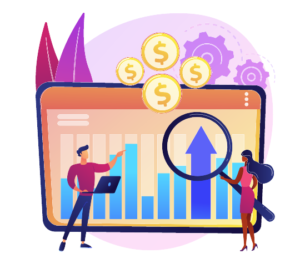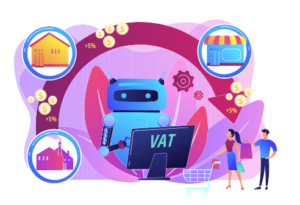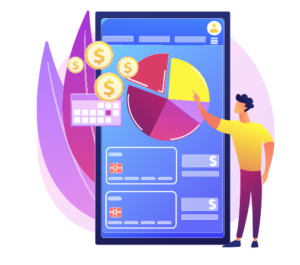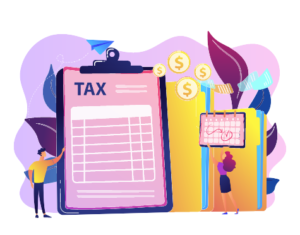Introduction
 Small to Medium Enterprises (SMEs) are adopting digital solutions for virtually every function within their business from employee management processes and training to project management, sales, marketing, customer experience, finance, and accounting.
Small to Medium Enterprises (SMEs) are adopting digital solutions for virtually every function within their business from employee management processes and training to project management, sales, marketing, customer experience, finance, and accounting.
For the purposes of this article, we are going to look at the business accounting software that allows SMEs to manage every aspect of their finances from basic functions such as invoicing, bank reconciliation, income and expense tracking, taxes, and financial report generation to managing budgets, performing accounting tasks for multiple currencies, and of course optimizing payroll functions.
Using a centralised platform automates business workflows, reduces accounting costs, and encourages better informed financial decisions through access to real-time reporting. An efficient accounting process leads to an efficient and profitable business.
Here are some of the factors that SMEs need to consider when choosing accounting software.
The Needs of the Business – Features and Functionality
 There are some important questions to be considered when choosing an accounting system. What accounting processes does the accounting software need to address for the business? How complex a solution is needed to service the financial requirements of the company to maximise efficiency and allow for growth? What are the no brainers when it comes to certain functions and features? What are the nice to haves? And, probably most importantly, what is completely extraneous to requirements? There is a plethora of extras and integration options offered by the software vendors, but usually at additional cost. How many users will the system have and how many customers/ clients will it need to service? Are there industry specific requirements that need to be met?
There are some important questions to be considered when choosing an accounting system. What accounting processes does the accounting software need to address for the business? How complex a solution is needed to service the financial requirements of the company to maximise efficiency and allow for growth? What are the no brainers when it comes to certain functions and features? What are the nice to haves? And, probably most importantly, what is completely extraneous to requirements? There is a plethora of extras and integration options offered by the software vendors, but usually at additional cost. How many users will the system have and how many customers/ clients will it need to service? Are there industry specific requirements that need to be met?
All businesses are not created equal, and one size does not fit all.
Cost
SMEs are generally working with tight budgets and cannot necessarily afford a full-time accountant. Affordability is key when an SME is looking for the right software. Cost may vary, depending on the features, or number of users supported, along with many other factors.
The norm now is for companies to offer their software on a monthly subscription basis as opposed to an expensive one-off software licence. This Software-as-a-Service (SaaS) approach has advantages, a monthly subscription feels manageable, and the software is automatically upgraded and always current in the SaaS model. The downside is, that over time, businesses may end up paying more than if they had bought a one-off licence.
Many accounting software companies claim that businesses can get back what they have invested through the efficiencies created by their software.
Free accounting software solutions are available. Some of these are very basic free tiers of paid software, others are freeware programs. Free options can be very helpful for start-ups who want to keep their accounts organized without committing to a paid solution. However, when it comes to something as sensitive as financial information – it may make sense to go for the security of a paid for option. Which leads us nicely on to the next area for consideration.

Data Security
The security of an accounting system is an absolute priority. They house confidential and private information at both a company and employee level and must be secure from unauthorised access and hacking. The more sophisticated the software and integration with other business critical applications becomes the more the risk increases and the more security measures need to be in place.
Compliance
This is a key area – In the UK Making Tax Digital, or MTD for short, means it is obligatory for nearly all businesses to use compliant software for tax matters and accounting. All VAT-registered businesses now must maintain digital records and file VAT returns to HMRC through approved software. Depending on what industry a company is in, or the countries in which it does business it might need more advanced features to ensure it meets financial compliance regulations.
Integration
Accounting software will allow integration with your bank, but the trend is towards systems also integrating seamlessly with other business software such as PayPal, GoCardless, Stripe, MailChimp, Basecamp, WordPress, Gusto, Zendesk, Twilio to name but a few.

Customer service and technical support
The support offered by a vendor for its accounting software is a vital factor to consider. Users need easy access to technical support as and when they need it. Some software companies even offer direct support from expert accountants included as standard.
SME Accounting Software Services
Here are some of the best accounting software packages out there. Some are familiar and well-established brands, others are newcomers and SMEs themselves. Some are aimed squarely at small and medium-sized businesses, while others also cater to larger enterprises.
Most offer free trial periods of up to 6 months followed by monthly payments from as little as £5 for a basic package suited to soletraders and freelancers, via a mid price point aimed at growing small businesses, to £35 a month for larger more well-established SMEs. Extra features and functionality such as payroll or bookkeeping tools are offered as bolt-ons for a small monthly fee.
- Sage
- FreshBooks
- QuickBooks
- Xero
- Clear Books
- Odoo
- Kashoo
- Zoho Books
- KashFlow
- Crunch
- Ember
- Wrike
- Soldo

